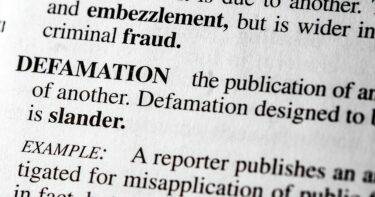
13
Sep 2021
The importance of legal advice in business purchases
If you are thinking of purchasing a business – whether as part of a new venture, a change of career, or to expand your existing business empire – then you should give serious thought to taking professional legal and financial advice throughout the process.
When buying a business, the principle of “buyer beware” applies. Whilst you could hand the money over to the buyer without any kind of checks, you are taking a huge gamble.
To give a feel for the kind of risks you are potentially exposing yourself to, we have set out a few examples and how the Chadwick Lawrence Corporate team can help you mitigate these risks. This is by no means an exhaustive list, and it focuses primarily on share acquisitions (as opposed to asset purchases), but it should give you a flavour as to how the addition of expert legal advisers can add value to your acquisition.
Awareness and identification of risk
As previously mentioned, when buying a business, it is “buyer beware”, and so the requirement to identify and be aware of any risk stems across the entire business. By purchasing the share capital, you are effectively stepping into the shoes of and taking over control of a legal entity. This means that any historical or future liabilities remain with the company even though the shareholders and directors may have changed.
Examples of risk include an ongoing costly litigation matter, an unhappy employee or the potential for unpaid or incorrectly paid tax. A tailored due diligence process, which takes into account various factors such as the type of business you are buying, can shine a light on hidden pitfalls and help you make an informed decision as to whether to proceed or abandon the purchase.
Once the risks have been highlighted, steps can be taken to mitigate them.
Mitigation of risk
Having highlighted some of the risks in purchasing the business, the question is how to reduce or eliminate this. Whilst no method is flawless, there are several tools available to the buyer’s advisers. The most common being warranties and indemnities within the purchase contract.
A well-drafted purchase agreement will include what is known as a set of warranties.
Warranties are a set of promises that the seller is making about the state of the business, and they are, in many ways, the bedrock of your decision as to whether to buy the company. These warranties will usually range from high-level ones such as a warranty that the seller has ownership of the shares and the power to sell them, all the way to more operational level warranties such as an assurance that they are not aware that any supplier or customer intends to cease doing business with the company. Should any of these warranties prove to be incorrect and as a result, lead to a perceived loss of value in the company, then a claim for breach of warranties could be made. For example, if the seller warranted that they own all the shares, but it later transpired that there was another shareholder, this would likely be a relatively straightforward claim.
Meanwhile, indemnities are generally used where a high-risk situation has been identified (usually in the due diligence), and it has been assessed that it is a significant risk. In this scenario, the seller effectively agrees to hold harmless the buyer of the shares if something goes wrong. The purpose of the indemnity is to place the company in the position it would have been, but for the occurrence of the event for which the indemnity was obtained. This can most often be seen where there is an ongoing dispute, such as an employment claim by an employee, and the purpose is to ensure that the seller remains financially liable for something that occurred during their period of ownership.
Protection of goodwill and customer base
The final point that we will look at in this blog is how to protect what is potentially one of the most valuable assets of the business, namely its goodwill and customer base.
If you are buying an owner-managed business, the reality is that the majority of the customers will be used to dealing with the seller. This means that without the proper protection in place, the seller could sell you his shares then immediately set up a new business in competition with you, rendering your purchase effectively worthless.
There are two main ways to reduce this risk. The first is to retain the seller for a period of time post-completion. Whilst this can often come at an additional cost, the seller can spend time introducing you to his customer base and ensuring a smooth handover. It shows the customers that the business is in good hands and will hopefully result in a lower decay rate of customers.
The second, which should, in almost all cases, be insisted upon is to have restrictive covenants included in the purchase agreement. The purpose of these is to prevent the seller from setting up in competition, poaching staff and taking away customers. Again, however, these must be carefully drafted as there are important nuances to observe to be legally binding.
Conclusion
Buying a new business can be a minefield. Without the correct professional advice, you could find yourself sinking thousands of pounds into an endeavour that is doomed to fail. The Corporate team at Chadwick Lawrence has a wealth of experience dealing with business purchases of all shapes and sizes and we can help you to smoothly navigate any transaction and place you in the best possible position. If you would like to have a discussion as to how we can help you with your business purchase, please contact us on 0113 225 8811.
- Like this ? Share with friends





